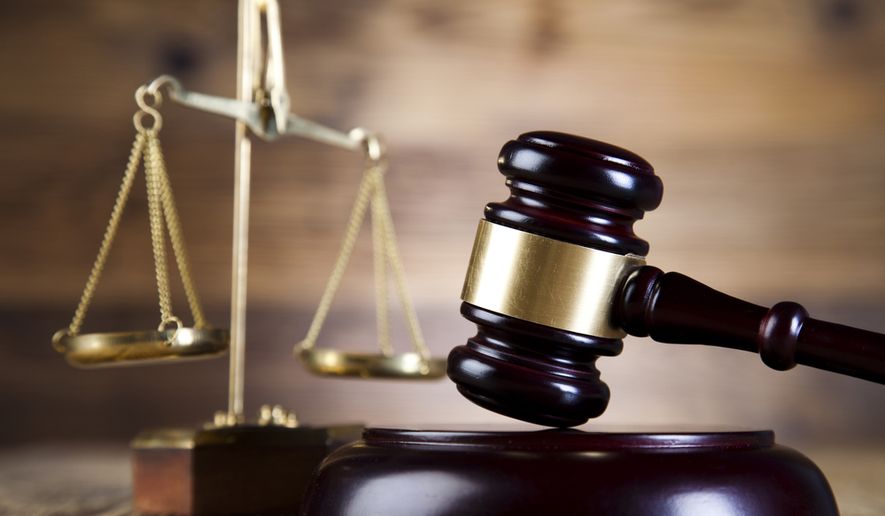The politicians, military officers and business executives who were clients of a high-end brothel network in Massachusetts and Virginia may have their names made public without ever being charged with a crime.
Massachusetts’ highest court heard arguments this week about whether potential probable cause hearings involving the more than two dozen brothel clients could be public, because concealing the “John Does” identities may appear as if the justice system is protecting influential figures.
Boston-area media’s insistence on covering the 28 Does, who were listed as customers in an ongoing federal case against the prostitution ring’s Korean organizers, motivated the outlets last year to petition to make public the normally closed-door hearings.
A Cambridge District Court judge sided with the journalists, prompting a tense hearing Monday in front of the state’s Supreme Judicial Court.
“The Boston Globe would like all the information on all the individuals, while at the same time conceding some of these individuals might not interest them at all, but they may not even be worthy of a line in the newspaper,” said Kevin Mahoney, an attorney representing one of the Does implicated in the brothel ring.
“But the issue is whether the public is comfortable that there’s not preferential treatment for the ones who are powerful,” Justice Scott Kafker countered. “How do you know if it’s not public?”
The clients — who federal prosecutors said were also doctors, lawyers, scientists, government contractors with security clearances, and executives with pharmaceutical and technology companies — could face state charges for paying for sex in Massachusetts while the brothel was allegedly active from 2020-23.
Since none of the Does have been arrested, court clerks in the state would hold “show cause” hearings in private. The hearing can include mediation that may not result in formal charges, which is when the court typically publicizes someone’s name.
Jeffrey Pyle, an attorney representing The Boston Globe, Boston’s public radio station WBUR and the city’s NBC affiliate WBTS-CD, argued that the potential affiliations of clients override the standard identity protections in place for such defendants.
Mr. Pyle told the Supreme Judicial Court that the case “is one of special public significance, and legitimate public interests outweigh the accused right of privacy.”
Attorneys representing some of the Does, such as Benjamin Urbelis, contended that giving the public access to these closed-door hearings could upend their personal lives — even if they walk out of court without being criminally charged.
He said the state legislature has twice rejected bills that would have made “show cause” hearings public. Mr. Urbelis added that federal prosecutors violated Justice Department policy by mentioning individuals who would “heighten public condemnation.”
“These are liberty interests, because undoubtedly, even if there’s no probable cause, once their name is out there in the media livelihoods are going to be ruined,” Mr. Urbelis said “Occupations likely lost, families ripped apart … their children are going to have to deal with this at school, so I would suggest that they did have a due process right to be heard.”
Mr. Mahoney, the other attorney representing some of the Does, wants the show cause hearings to be handled on a case-by-case basis. Charging documents said accountants, retail workers and students also made use of the brothel.
The court will issue a ruling on the case next year.
Brothel ringleader Han “Hana” Lee is expected to plead guilty to federal charges during a hearing later this month, according to a recent court filing.
Ms. Lee, 41, of Cambridge, is accused of running the brothel network that offered prostitutes from $350 to $600 per hour.
Court documents said Ms. Lee and her co-conspirators set up two websites — one in Massachusetts, and one in Virginia — that advertised for photographers to snap pictures of nude and semi-nude Asian women at an upscale studio.
Despite explicit messages on the website stating that the photography services were not a way of marketing commercial sex, the federal court filing said “both sites do in fact promote and advertise prostitution.”
Prosecutors said the brothel would send text messages to customers with a “menu” that included the “girlfriend experience,” where the prostitute simulates a romantic relationship with a client, or the pricier “BB” services where the client could have unprotected sex with the prostitute.
The prostitution ring is alleged to have used at least four properties in Cambridge and Watertown in Massachusetts, as well two properties between Fairfax and Tysons in Virginia. Ms. Lee is also accused of flying the prostitutes from Massachusetts to Virginia and vice versa.
“Based on my training and experience, I believe that both the Boston and the Virginia brothels are high-end because of the high cost associated with the rental units, the location of the rental units, as well as the scope of the professional disciplines of the sex buyers,” a Boston-based Department of Homeland Security agent wrote in the criminal complaint.
Prosecutors accused Ms. Lee and co-conspirators James Lee, 69, of Torrance, California, and Junmyung Lee, 31, of Dedham, Massachusetts, of laundering their proceeds to hide the source of their cash.
Each defendant faced charges of interstate prostitution and money laundering when they were indicted earlier this year. If convicted of both counts, they could face a maximum of 25 years behind bars.
It’s unclear what plea deal Ms. Lee is intending to accept on Sept. 27.
Junmyung Lee also asked for a change of plea at a recent hearing. He is scheduled to return to court Oct. 1.
James Lee has maintained a not-guilty plea throughout the case.
• Matt Delaney can be reached at mdelaney@washingtontimes.com.




Please read our comment policy before commenting.